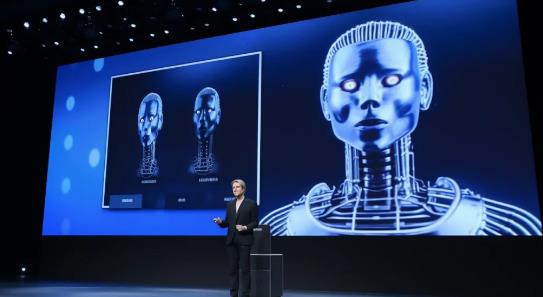Samsung's Gauss is a powerful AI model that can generate text, translate languages, write different kinds of creative content, and answer your questions in an informative way. It is being developed for integration into a variety of Samsung products and services, including smartphones, computers, TVs, and smart home devices.

Samsung announced on November 8, 2023, that it is developing a new generative AI model called Gauss. Gauss is similar to ChatGPT in that it can generate text, translate languages, write different kinds of creative content, and answer your questions in an informative way. However, Samsung claims that Gauss has a number of advantages over ChatGPT, including:
Samsung plans to integrate Gauss into a variety of its products and services, including smartphones, computers, TVs, and smart home devices. This will allow users to access the power of generative AI from anywhere and at any time.
Here are some specific examples of how Gauss could be used in Samsung products and services:
Samsung has not yet announced a release date for Gauss, but the company says that it will be available to consumers in the near future.
Implications of Gauss for the future of AI
The announcement of Gauss is a significant development in the field of AI. Generative AI models have the potential to revolutionize the way we interact with computers and the world around us. By automating tasks that are currently performed by humans, generative AI models can free up our time and allow us to focus on more creative and strategic work.
Gauss is particularly significant because it is being developed by Samsung, one of the world's largest and most influential technology companies. This means that Gauss is likely to have a wide reach and impact on the AI market.
Here are some specific ways in which Gauss could impact the future of AI:
Overall, the announcement of Gauss is a positive development for the field of AI. It is likely that Gauss will have a significant impact on the adoption and development of generative AI in the years to come.
Ethical considerations
While the potential benefits of generative AI models like Gauss are significant, there are also some ethical considerations that need to be addressed. For example, it is important to ensure that generative AI models are not used to create harmful or misleading content. It is also important to ensure that generative AI models do not displace human workers.
Samsung has said that it is committed to developing and using generative AI in a responsible and ethical manner. The company has established a number of guidelines for the development and use of generative AI, including:
Samsung is also working with other companies and organizations to develop ethical standards for the development and use of generative AI.
PREVIOUS STORY